The war is over, but the wounds it inflicted are going to bleed for a long time. Say as we may that life goes one, we cannot forget the duty we have to those who witnessed the war first-hand, fled their homes, and lost loved ones.
Despite the harsh times, people carry on struggling and creating, simply because they have to – for the sake of their children and the hurting homeland. Mediamax tells about women from Hadrut, who have shown incredible strength of spirit.
Our home, Hadrut
“I felt safe as long as we had our home in Hadrut. It is so large, with a piece of land and a pool. Whether the pandemic struck or anything else, whether the world went on lockdown, we knew we had our house and our land, we knew we could go there and live together. Now, there is nothing left, although Hadrut always belonged to Armenians” tells Lara Safaryan, a native of Hadrut.
Her ancestors lived in the “Old neighborhood” part of Hadrut. During the war, when the Turks invaded Hadrut, they burnt the whole neighborhood down.
“I was born in January 1994, my sister – in October 1992. My mother gave birth in the basement, so even at the peak of the first Artsakh war, babies were born in Hadrut. Turks did not dare come to Hadrut then. We always celebrated August 15 as Hadrut Day, but in terms of defense, not liberation, because the enemy was thrown back from our border,” tells Lara.
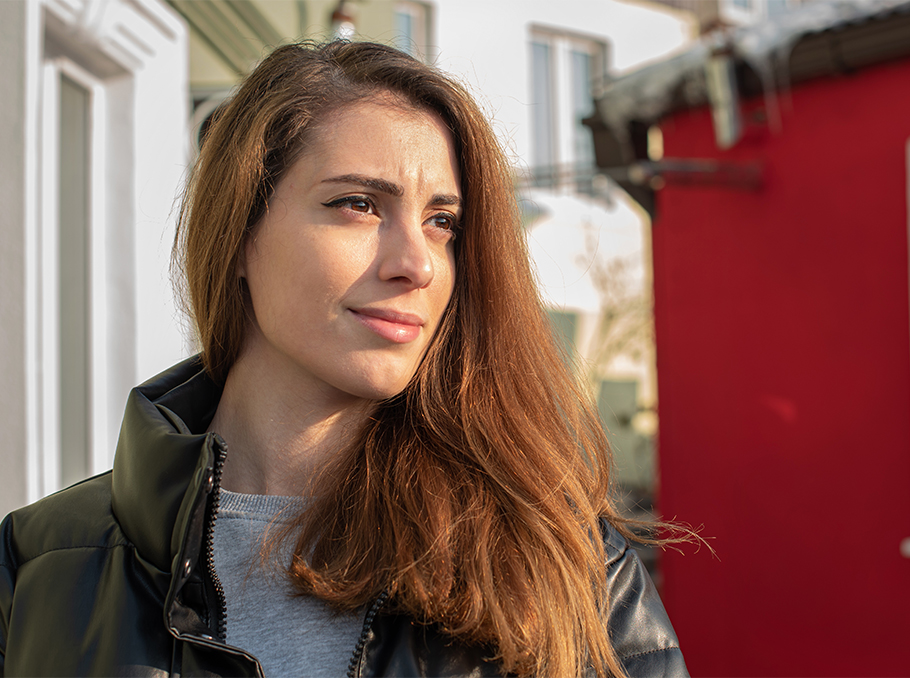 Lara Safaryan
Lara SafaryanPhoto: Mediamax
According to her, there is a place not far from Hadrut called “Parrots”. It got the name during the first Artsakh war, because when people spoke on radio sets in that spot, their voices echoed. When you pass that spot, you can see the town, and it looks like a bird’s nest.
“Every time I reached that spot and saw the town, my heart would start beating harder – that is how much I love Hadrut,” says Lara.
A shelter that cannot protect
The town was shelled from the first day of the war. “They did it to drive us out,” explains Lara.
Initially, Lara thought a building was being demolished, but as she learned, the sounds of explosions meant shelling. Stepanakert, Askeran and all other regional centers were shelled in the same hour as well.
On the very first day, Lara took her 3-year-old daughter Sofi and left. She could take with her only the babies’ toys. Lara’s mother, Susanna, refused to leave the town, saying: “I do not want to go, my husband is here.”
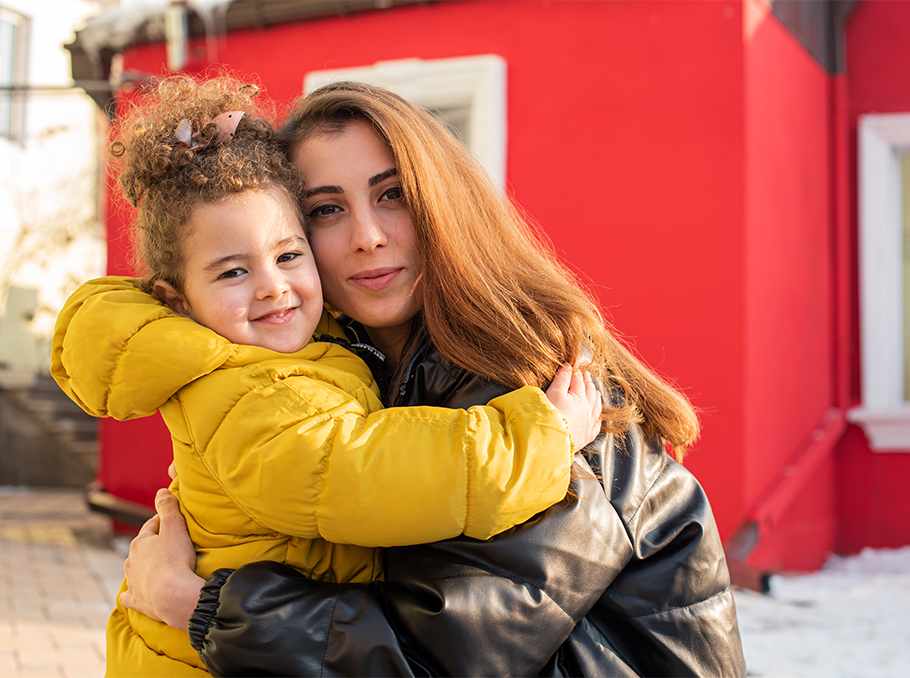 Lara Safaryan with her daughter
Lara Safaryan with her daughter Photo: Mediamax
The explosions shattered the windows in Lara’s house, and the broken glass is all over the rooms. Susanna had to hide in the basement, but it was not safe anymore. She showed us the photo of the basement where she stayed for days: the holes in the walls prove Lara’s words that shelters cannot protect from modern arms. If a shell fell on the house, it would be destroyed along with the basement and everyone in it. Such cases happened in Hadrut.
“I stayed in the basement until October 4. When it was no longer possible to hide there, I went to Shushi by a friend’s car. All I could take with me were some clothes for the children and things that just happened to be close. I was in such a confused state that only later I noticed I left behind some important documents. I stayed in Shushi for a night, hoping that the fighting would stop. The hotel where I was staying was a quarantine place for COVID-19 patients, and I stayed in the basement, because the Azeris were shelling Shushi. After arriving in Yerevan, I fell ill and later tested positive for coronavirus. I cannot even describe for you the period when I was sick, I barely beat the virus,” recalls Susanna.
Targeted
“I kept reading in the news that Hadrut was targeted, shelled… I cannot remember days separately, because it was one long nightmare. All days just merged, there was no telling when one ended and the next one began…” tells Lara.
She stayed at a friend’s place in Yerevan at first and then moved to a relative’s flat. Other members of the family joined Lara, and soon, there were 10 of them and the two-room flat could not accommodate them.
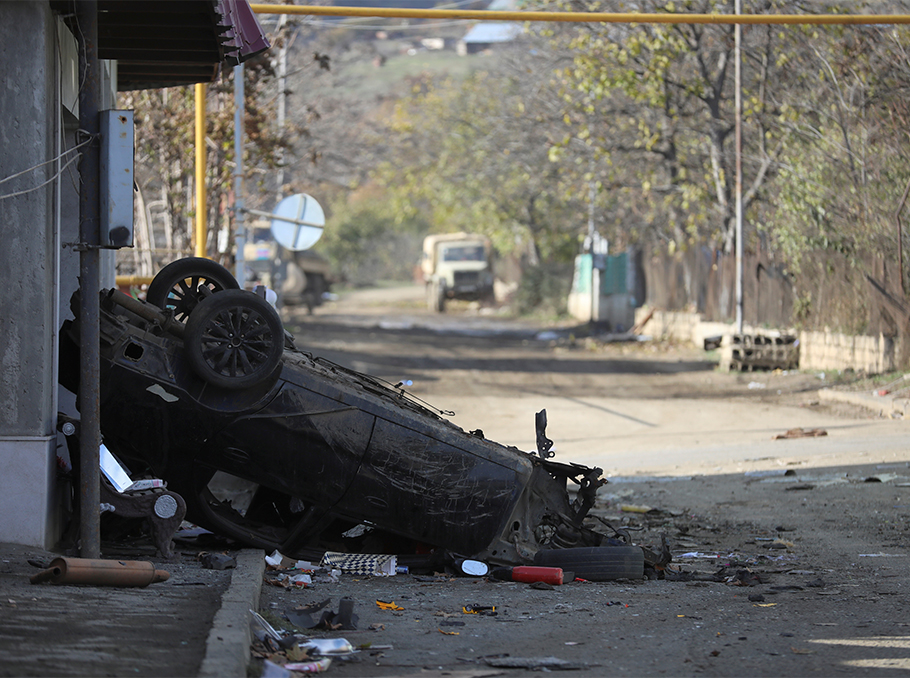 In Hadrut
In HadrutPhoto: REUTERS
“I had a job in Yerevan but I was on maternity leave. I went back to work and rented a flat. My father is a pensioner, my mother taught at the Hadrut school, and now she lost that job. I am the only breadwinner now,” says the 26-year-old woman.
Not the soldiers’ defeat
Lara’s father fought in the first Artsakh war and the April war. The age threshold did not let him participate in the latest war. All Lara’s brothers fought, though.
“The state of these men is horrible now, because they have kept Hadrut for so long, and now… The men in Hadrut were not armed. Some says the town was not defended, but that is willful misinformation.
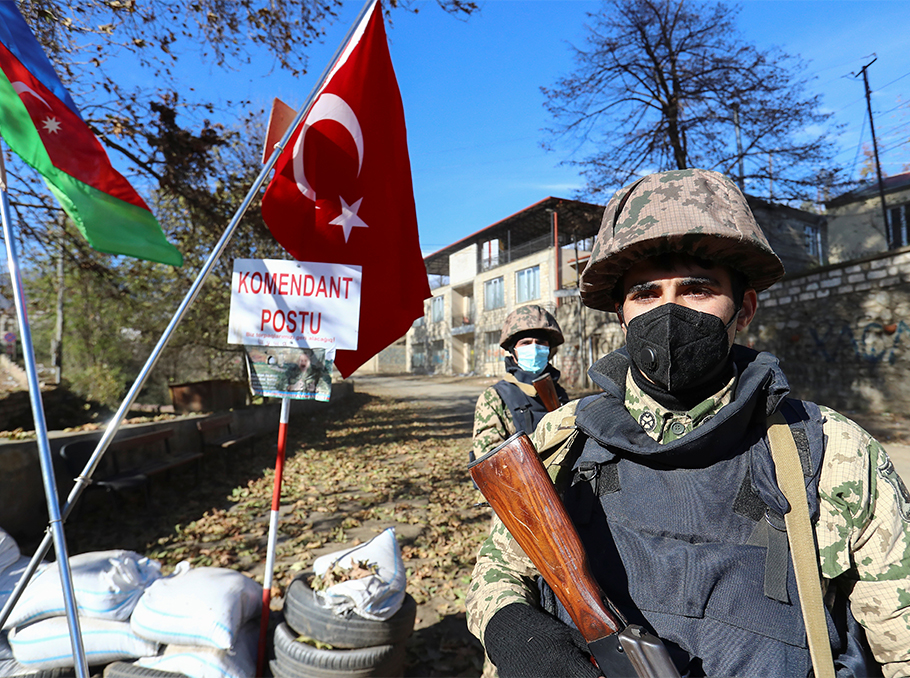 In Hadrut
In HadrutPhoto: REUTERS
On October 9-10 the men were just told to leave. A few dozen might have stayed even without weapons. Some of them were probably killed, and the rest were captured,” tells Lara.
It was a horrible war. The authorities can’t find people, bodies. According to Lara, the elders are struggling to grasp it: some of the elders she knows managed to get out, but their hearts gave out.
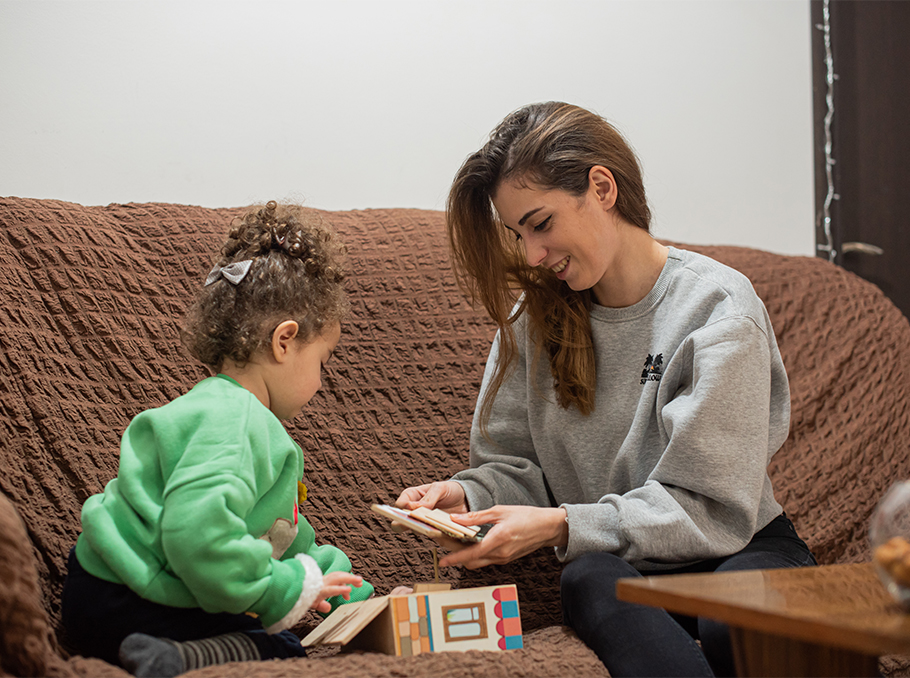 Lara Safaryan with her daughter
Lara Safaryan with her daughter Photo: Mediamax
“The military base was close to our house. Going to school, I passed by it and saw the soldiers. At that time they seemed grown-ups, people of a higher kind. Now I’m grown, I have a child, but I still feel that the soldier stands higher. We always put our trust in the soldiers… This defeat is not of the solders’, this is a result of wrong policies. When they fought, I said we would win, our soldiers won’t let it be any other way… And now we have so many dead, wounded, and so much land lost …”
Refusing to live side by side with murderers
It is impossible to communicate and coexist with Azerbaijanis, Lara says. It is very clear, even though no one in the world cares.
“They are murderers. How can you go live next to someone who murdered your husband and your brother just months ago? It is impossible to reach any agreement with them. One day they might have a drink, then force their way into your home and kill everyone. Such things happened even in Soviet times. Living with Azerbaijanis in the same settlement is out of question,” Lara says.
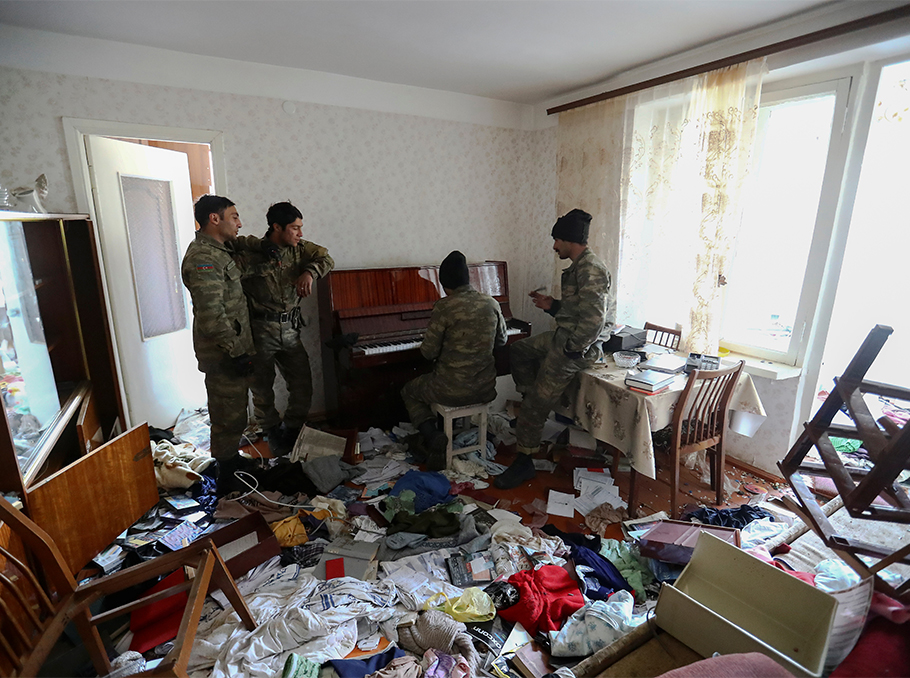 Azerbaijani soldiers in a flat in Hadrut
Azerbaijani soldiers in a flat in HadrutPhoto: REUTERS
Now the Azeris continue burning houses in Hadrut, as Susanna has seen in videos. The Azeris also enter the houses, go through family pictures and mock the people depicted on them.
“When you know your house is still standing, it is a consolation, but when you see it burning… We will rebuild when we go back. As they say, Armenians are good at restoration – we can build something out of thin air, but I’m watching the fruit of years-long labor burn,” says Susanna with pain in her eyes.
The resolve to return
Lara’s sister returned to Stepanakert. She says it is difficult to find a flat for rent and those available are expensive. Nevertheless, around 80% of Lara’s acquaintances have returned to Artsakh.
“They want to build something from scratch, try to return to normal life. The worst part is there are too many concerns, and as soon as the air travel is possible, people who can get away will emigrate. I myself am one of the people who would never want to live in a different country. I still want to change something, be of use here,” adds the young woman.
***
Everyone passing 28, Moskovyan Street can feel the sweet smell of flatbread with greens, the traditional “jengyalov hats” of Artsakh. Gayane Narimanyan from Hadrut has been cooking there for several months, as she had to flee with her three underage children on September 27.
The hellish road to Stepanakert
“Early in the morning, we heard noise, as if from fireworks. We did not expect a war to break out. My husband is in the military, so he got called to action right away. We were told to leave: a shell fell just two houses away. First, we went to the basement, then a man who was taking the residents away by his own car, saw that there was no one to help me and the kids, and helped us escape too. There were 10 of us in the car, so no room to take anything we us,” recalls Gayane.
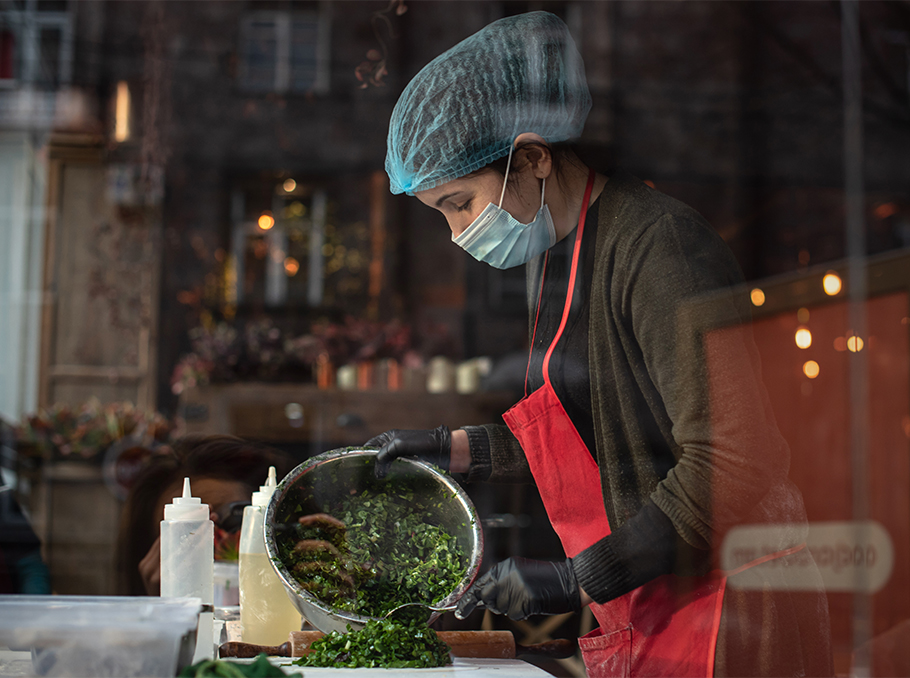 Gayane Narimanyan
Gayane NarimanyanPhoto: Mediamax
According to her, the road to Stepanaker was hell: shells kept falling in front of, behind, and beside the car. “We prayed the whole way to Stepanakert. From there, the road to Yerevan was calmer,” adds Gayane.
Shelter and work
She did not have close relatives in Yerevan. A stranger helped her, sheltering her family in his hotel. They are still living there.
A few days after arriving, Gayane noticed women baking “jengyalov hats” in the street and offered help. Gayan was hired as soon as they learned she was from Hadrut. While Gayane’s husband is in Artsakh, she is the children’s sole caretaker.
“Mama, are they riding our bicycle?”
“Until the last day of the war, we hoped we could return to Hadrut. We left everything there. Children ask all the time: “Mama, have the Turks taken our bicycle? Are they riding it? Have they burned it?” I tell them it’s alright, I’ll buy a new one. They keep asking when we can go back, and I don’t know what to tell my kids,” says Gayane.
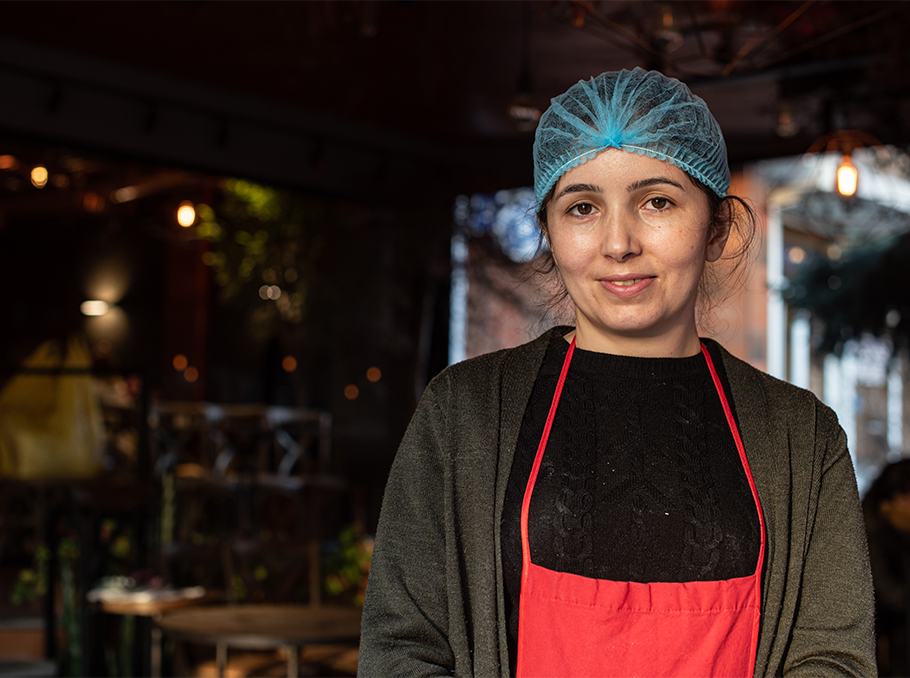 Gayane Narimanyan
Gayane NarimanyanPhoto: Mediamax
Gayane’s husband is struggling to find a flat to rent in Artsakh. Kindergartens and schools are full, and hotels have no vacant rooms. The family remains separated, and the children miss their father.
The memories
“Before this war, I was always curious how the Armenian refugees from Baku managed to recover from the stress, and now I am feeling what they felt back then. You just realize you need to overcome hardships for the sake of your children. You need to be strong for them and keep fighting,” said Gayane.
What pains Gayane even more is not the loss of the house and all their possessions, but the memories, the children’s photos and books they could not take with them.
Article and photos by Gayane Yenokyan
















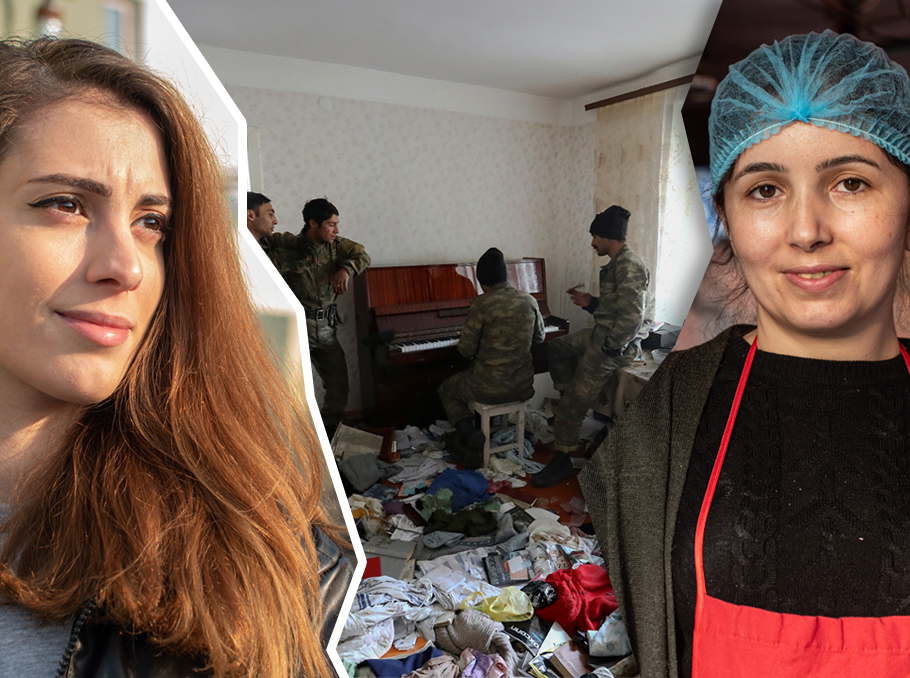
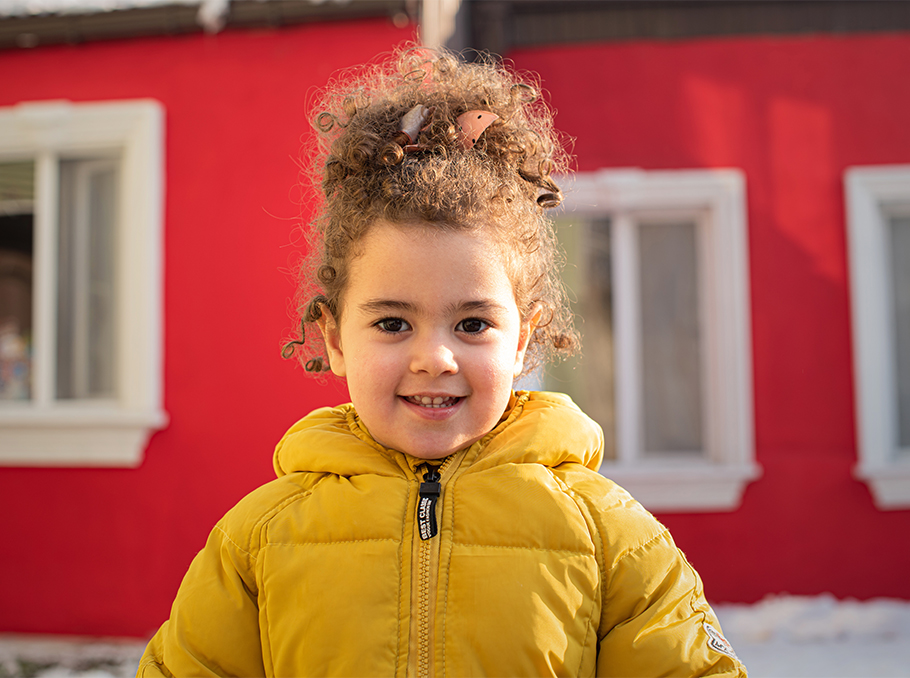






Comments
Dear visitors, You can place your opinion on the material using your Facebook account. Please, be polite and follow our simple rules: you are not allowed to make off - topic comments, place advertisements, use abusive and filthy language. The editorial staff reserves the right to moderate and delete comments in case of breach of the rules.